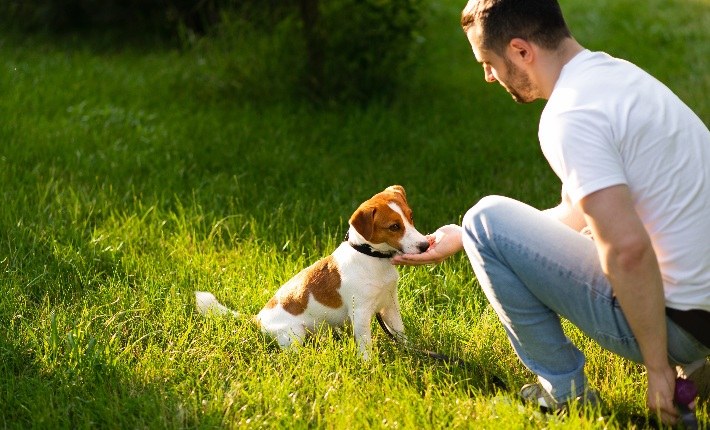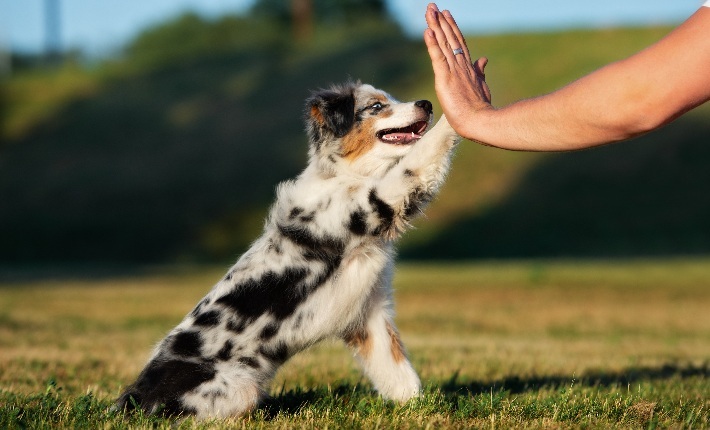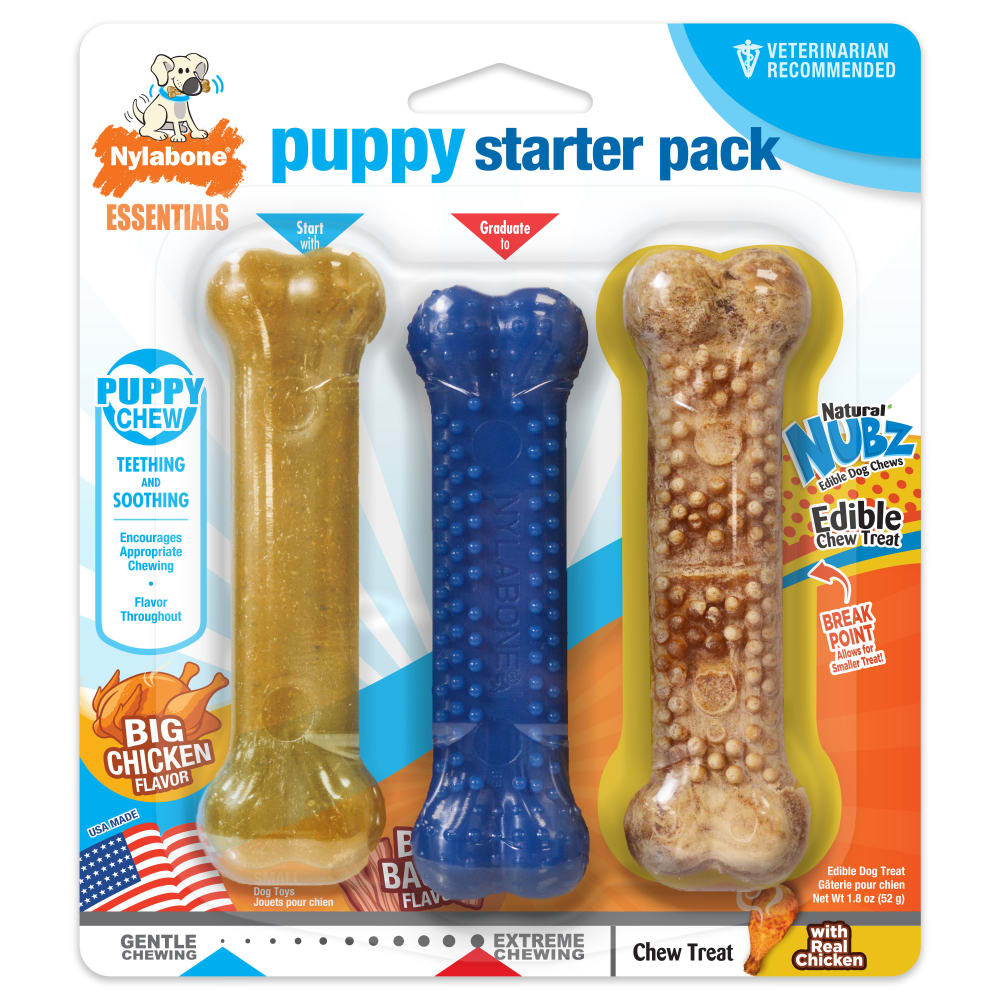5 Simple and Effective Puppy Training Tips
Welcoming home a puppy brings new joy, love, and excitement into any pet parent’s life! While there will be plenty of moments for precious bonding during those first few weeks together, it’s also a critical time to start teaching your new furry friend. Follow these simple puppy training tips to help your pup grow up a happy, well-behaved companion.
#1: Start Training Early
Many pet parents start with potty training, as teaching a pup the proper spot to “go” is an essential part of their early education. While potty training should begin on the very day of your puppy's homecoming, it’s a common misconception that other types of training should follow potty training.
Perhaps you don't want to overwhelm your pup, or maybe you worry that additional training will distract them from their potty training goals. However, teaching basic obedience will reinforce your pup's overall training progress, not hamper it!
Follow this basic principle for the best results: train early and train often. This will make teaching your puppy much easier and prevent many common dog behavioral issues down the road. Puppies are always learning—it’s up to you to make sure they’re learning the right behaviors!
#2: Enlist Help
Consider enrolling your new pet in puppy kindergarten, the common name for an introductory dog obedience class. Like kindergarten for children, puppy-K focuses on the basics. In addition to learning a handful of basic puppy commands such as “sit” and “down,” your pup will also get a chance to interact with other puppies and their pet parents when class meets. This meet-and-greet time is just as important as the lessons themselves. Socializing your puppy is one of the best ways to teach proper behavior. Plus, a well-socialized pup will be friendly and at ease in new situations.
Another key puppy training tip is to ask friends or family members to help. The more people who take part in your pup's education, the better trained they will be; you don't want your pet to see you as the only person whose commands they must obey. Having more eyes on your pup is also helpful for preventing them from regressing when you may not be around.
One training resource many adults overlook is older children, who can be especially helpful in the training process. Invite them along to class so they can learn how to puppy train, too.
#3: Keep It Simple

Training a puppy won’t be as difficult if you take it one step at a time. Keep sessions short—no more than 15 minutes without a break. Doing so will help prevent your dog from getting bored or distracted and give them time for playing, resting, and going potty. Plus, your pup will learn more from a few 15-minute training sessions each day than one long session.
Work on one or two basic puppy commands at a time until your pup begins to understand and perform the task. You can then move on to teaching additional commands, again no more than a couple at a time. You should also give your dog commands outside of training sessions. For example, instructing your puppy to sit before giving them their meals will reinforce the command and teach good manners.
🐶 Related: Walking a Puppy in 3 Simple Stages
#4: Use Treats and Chew Toys
Most puppies are motivated by tasty dog treats! Edible rewards used during training should be small and easy to chew, allowing you to quickly get back to the task at hand. Look for treats with wholesome, limited ingredients to make training fun and nutritious!
Speaking of chewing, giving your puppy chew toys will help train away destructive behavior. Dogs are born with a natural chewing instinct, and your furry friend might resort to munching on things like your shoes or furniture if they’re not given a healthy chewing outlet. The sooner your pup learns to use flavorful and long-lasting chew toys, the less likely they will be to destroy your belongings. Plus, chew toys provide comfort and relief during the puppy teething stage—another critical aspect of your pup’s development!

#5: Stay Positive

Encouragement is by far the most important reward you will ever give your furry friend! Harsh words or actions can scare any dog, but they can be especially intimidating for young pups. While you shouldn’t reward your pet for doing something wrong, showing emotions like frustration and anger will only confuse or frighten them. Simply ignore unwanted behaviors. If you are feeling overwhelmed, take a break.
Whether you are working on teaching a simple command or dealing with an unwanted behavior, a positive attitude can make all the difference in how quickly your puppy learns. Rewarding your pet with yummy treats is a great way to reinforce positive behaviors, but never forget the value of verbal praise. Puppies enjoy pleasing their pet parents, so let them know when they’re doing a great job with a wholehearted "Good dog!"
Practice Makes Paw-fect
One of the best training tools you can give your puppy is patience. Learning how to puppy train will be a challenge for you and your dog, so taking it one day at a time will help them ease into their new environment while developing a deeper bond with you!
With these puppy training tips, you’ll be better prepared to teach commands and prevent negative behaviors. Explore these training topics:
· How to Teach Your Dog to Sit and Stay
· How to Teach Your Dog to Lie Down
FOLLOW US!






